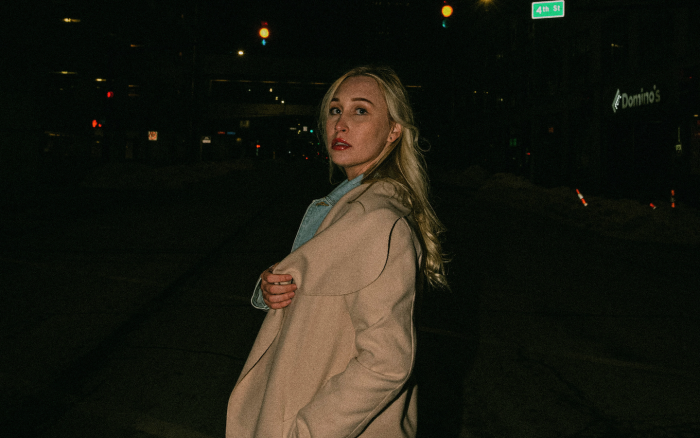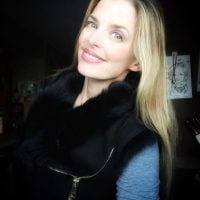Clawing for solutions and support, I desperately penned what felt like a plea, screamed into Facebook:
“How do I make it through these years of my life?”
I crawled into the top bunk of my child’s high bed, exhausted but unable to sleep, the weight of my life suffocating. Wrapped in my isolation like a straightjacket, the ceiling palpably close, I felt desperation engulf me.
I had nothing left. As a lone parent and sole financial provider, I was crushed by obligations yet failing at them all. My 12-hour workdays felt financially inadequate; my work ethic was driving me toward burnout but not bringing me closer to a balanced bank account.
My “spare time” involved picking up overturned boxes of Legos, dismantling abandoned Hot Wheels tracks, and doing laundry when I wasn’t doing dishes.
The darkness surrounded my body, the blackness of the night matching the color in my heart. I held my breath and anxiously awaited replies to a question that had percolated inside my heart for months but had only just found the courage to ask.
Twenty-five responses came, the members of my single mom group cheerily pronouncing: “You got this!”
My heart dropped.
I didn’t feel like I “had it” at all. And the exclamation points just felt like stabbing reminders: I was alone.
They say, “It takes a village.” But where was the damn village?
The more overwhelmed and isolated we are, the more we need community. The most valuable time is when we are most vulnerable; when we need it most, building a community feels difficult, obtuse, and mysterious. After all, we can’t exactly sign up for it on a baby registry or in the welcome wagon.
Feeling desperate for support, I stomped into the living room, stabbed on the lights, and Googled: “mentor programs.” At 3 a.m., I was hoping to find someone—anyone, anything, anywhere—who could help.
It’s fundamentally human nature to want to participate in an interconnected multigenerational social support system that splits our burdens and multiplies our celebrations, passing knowledge up and down the ladder of elders.
Community doesn’t require us to have friends, success, or money. Community requires showing up, the feelings of human inclusion, and care—naturally born through repeated presence.
My search turned up a mentorship program dedicated to supporting young mothers of a vulnerable age. I clicked the link.
Too old to be a participant, I qualified as a mentor.
Weeks later, without knowing how I was going to “find the time” or how I was going to “mentor” when I felt a sense of personal overwhelm and inadequacy, I sat in a fluorescent-lit orientation room. I sipped on coffee as watery as my confidence in my ability to “help,” becoming the first single parent mentor in the history of the program.
I felt irrational and inexplicably compelled forward, moving toward it as though satisfying a craving.
Human compunction toward creating and cultivating community is one of the strongest human drivers. We are tribal animals, naturally seeking a sense of connection, bonding, and belonging with other humans around us. Without this, we would literally die.
We feel driven to witness other human experiences and feel seen in ours. By biologically attuning to other people, our nervous systems respond by generating waves of physical peace and calm in our bodies.
Our brains process safety when we act as empathetic, abiding witnesses to other humans or have our own experiences seen. Through this, we process emotions with presence, grace, and acceptance. It is this that makes us human.
When we are at our lowest, we can start to build the village in groups we relate to. Community builds a sense of belonging.
Although old enough to be their mother, I shared a portion of common experience with these women: challenging parenting circumstances. That alone was enough.
Our group met weekly, the work feeling different than friendship. We were not going for cocktails or sharing confidences over the phone.
Instead, we did worksheets on personal values, sharing basic potluck dinners served in vintage crock pots and gathered in chairs pulled into literal circles. We were not “helping” one another in a traditional sense; rather than swapping babysitters or recipes, we instead exchanged sorrows, hardships, joys, and laughter.
The human exchange of laughter, tears, and moments of frivolity is one of accepting, holding, and collectively experiencing our deepest humanity—our emotions. This community exchange is fuel for the darkest hours that follow.
I was curious to learn about their life choices, so different from my own. One of the young women detailed fears about completing her education; I spoke of my age-related fatigue. We turned to one another and said, “I’m glad I didn’t have a child at your age. It sounds hard.” We burst into mutual laughter. Punch buggy.
Community generates understanding. We develop compassion for others and self-compassion for ourselves. Curiosity, participation, and exploration are powerful drivers for engendering a sense of inclusion.
My largest worry (time) materialized on its own as I dropped the guard of my life, my body finding the peace that had otherwise eluded me.
The first week, assuming a stiff and rigid posture, I felt as physically uncomfortable and abandoned as the scratchy donated furniture in the basement room. As our mutual sense of kinship and empathetic abiding presence grew, I felt my body relax, taking the soft shape of the vintage couches. For an hour a week, I allowed myself to soften. I found care and connection in my heart for these young women.
With community, care comes easily.
Being witness to another’s experience creates its own internal heat, warming us from within. Our bodies can soften in the mutual hug of community, as our nervous system responds to the nervous system of others in our sphere.
Community is the passing of knowledge and care up and down the ladder of generations. Participating gives us a sense of perspective and purpose, no matter if we are giving support or getting it.
We can show up.
We can discern the difference between friends and community.
We can mentor and be mentored.
We can ask for help and freely give of our time.
We can find community by looking for places where we already belong.
We can share both joy and pain.
We can understand that community isn’t about reciprocity.
The village was no longer elusive; months ticked by.
One of the mentees, who entered the program as a teenage high school dropout living in a shelter, the victim of domestic abuse by her homeless, drug-addicted ex-partner, texted me.
She expressed her desires: to finish her high school equivalency and continue her education because she was “inspired” by my life. She wanted a life that looked like mine.
The same life I felt suffocated and overwhelmed by.
I hadn’t given her much other than presence—a sense of care and attunement. It was enough to generate a sense of inclusion for us both.
It was easier to build than I realized it could be, as I became the elder I thought I was looking for.


 Share on bsky
Share on bsky





Read 72 comments and reply